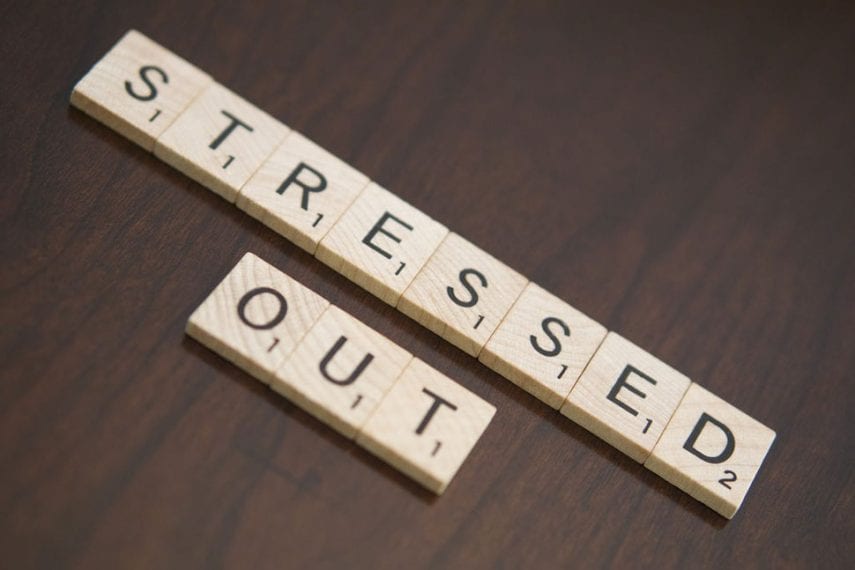Counting on Cortisol: Stress and Mental Health Disorders

While trying to keep up with the pace of this ever-changing and rapidly spinning world, we often find ourselves feeling too busy or stressed to keep up with our own basic needs: we didn’t eat all day because we were non-stop at work; we only got four hours of sleep because we were preparing for a corporate presentation; we go for days, maybe weeks, without any form of relaxation or mental rest because there is just too much firing around us at all times. Sure, this way of life is exceptionally common and normal by today’s standards, but the negative spiraling effects of constant stress are much more serious than anyone might realize or expect. For those who who already struggle with a mental health disorder like OCD, depression, or severe anxiety, a stress “addiction” can be a real possibility.
Fight or Flight?
The term “stress addiction” may seem like an outlandish or ridiculous statement to some, but it is an increasingly dangerous epidemic that needs our attention–and for good reason. Over sixty percent of persons polled in a 2014 survey by NPR and the Harvard School of Public Health reported feeling stressed on a daily basis, and over twenty-five percent claimed that those stress levels are extreme.
Stress does actually serve a purpose. As you may know, stress is actually a biological process that is designed to help us in so-called “flight or fight” situations. When these arise, our bodies naturally produce adrenaline and cortisol–two hormones that help keep us alert, aware, and prepared to protect ourselves by stimulating the body’s muscles (including the brain). If these levels remain high for a period of time, though, it becomes harder for them to taper off and regulate themselves in our systems, creating a consistent, toxic drip of unnecessary hormones.
As our body’s dependency on these high levels of adrenaline and cortisol increases, it becomes something we need in order to feel normal, acting as an addiction. Unfortunately, a body addicted to the natural stress response then becomes weakened, unhealthy, and more susceptible to much more dangerous and serious health complications–both physically and mentally.
Call for a Free Confidential Assessment.
877-727-4343The Masking of Mental Health
If any of this sounds familiar to you, or you recognize that you have been stressed and anxious to the point where it is affecting your sleep patterns, moods, and mental health, you have to ask yourself:
Where does all of this stem from?
Those who battle depression, anxiety, bi-polar disorder, OCD, and even PTSD can use excessive busyness as a way to cope with their internal trauma; when you don’t have any time to do anything other than work, you don’t have to feel or think about what is at the root of your pain. Not only does this create a vicious cycle that perpetuates existing conditions, but it can sometimes be undetectable until it is too late–because we happen to live in a world that equates stress and being intensely busy to importance, not poor health.
Recent research concerning the stress-vulnerability model has shown that for those with a biological “vulnerability” toward certain mental health disorders–or those who have already been diagnosed with one–such as depression or anxiety–have a much greater chance of stress exacerbating their primary condition. In addition, the chances of becoming reliant on stress hormones are much higher, making an addiction to stress a real possibility that needs treatment.
Treatment from the Inside Out
If you have experienced major trauma or struggle with difficult emotions that just don’t seem to go away, it is important to remove the mask of stress in order to touch on the deeper-seated causes. Bridges to Recovery offers completely individualized treatment with diverse options to fit your personal journey, including drumming/music therapy, pottery classes, meditation and yoga practices, and even acupuncture. Allowing yourself to have adequate relaxation time and eliminating sources of toxicity from your life–whether they are people, activities, or ideas–in conjunction with treatment can be the beginning of increased mental and physical health.
Even if you believe that high stress is a natural part of your life and you are just used to the cycle of stress and coping with your already-present mental health disorder, it is much easier to get quality treatment before the cycle gets out of hand. Recognizing the effects of stress on top of your primary diagnosis can be tricky, but looking out for yourself before it can spiral out of control is the best way to begin the healing process.
If you or someone you know suffers from chronic stress alongside a mental health disorder, Bridges to Recovery can help. The quality treatment at the hands of our trained professionals allows you to not only access the root of your distress, but be on your way to a happier and healthier life through an individualized treatment program. For any questions or concerns, contact us today.






